Look in the Mirror. You Are Your Own Worst Enemy
“You are your own worst enemy” is a lesson I learned in the 8th grade.
While in the 8th grade (1978), I played for the U.L. Light Junior High School football team in Barberton, Ohio, a town of 28,000. Our rival, Highland Junior High School, was on the other side of town. The annual game between 8th and 9th-grade teams of each Junior High School took place under the bright lights of the Barberton High Stadium (now Sharkey Stadium) at the end of each season.
For us 8th graders, this game was the equivalent of the Ohio State – Michigan Game, the Notre Dame – USC rivalry, the slugfests between Nebraska and Oklahoma, and the Army-Navy clash all rolled into one. In short, it was our version of the Super Bowl.
To make things interesting for me, my Mom taught at Highland. In addition, the head coach (Jeff Janiga) of the Highland 8th-grade team was one of my teachers at U.L. Light. This made for an interesting dynamic.
We had a pretty good team and thought we could beat Highland under the bright lights.
Unfortunately, Highland beat us in a closely fought game. A neat trick play turned the tide for them.
The post-game gathering underneath the bowels of the Barberton Stadium was not pretty. We were upset and pissed off. The prevailing mood among the players was, “we got screwed by the refs.” The players, including myself, ranted about how “UNFAIR” the refs had been. Our coaches tried to steer us away from this mindset, but our minds were made up.

In short, we were whiny, sore losers. We should have known better than to whine. We were not taking responsibility for the outcome of the game. Blaming the referees was an easy cop-out. We could not see that we were our worst enemy in the game.
The reality was that we shot ourselves in the foot with numerous mistakes during that game. We made more mistakes than Highland did. We failed to defend against that well-executed trick play. The refs didn’t cost us the game. We beat ourselves.
My father saw me complaining bitterly about the outcome, took me aside, and pointed out that, had we eliminated our mistakes, we likely would have won the game.
He was right.
What he pointed out was that by eliminating your own mistakes, you increase your chances of success. This episode planted a seed in my head and changed my outlook. Anyway, he was not pleased with my post-game attitude!
It took several years for that seed to sprout into a lifelong belief….evaluate yourself and your actions before blaming somebody.
One of my pet peeves about today’s society is that many do not take responsibility for their problems or lack of success, preferring to blame others or believe that the world is rigged against them. As a result, they don’t realize that their worst enemy is staring right at them.
I’ll never forget what Jimmy Johnson said after his Miami Hurricanes lost to Notre Dame in the great 1988 game where the Irish prevailed 31-30. Many Miami players complained about a controversial fumble call against running back Cleveland Gary late in the game. Johnson said in the post-game press conference, “You can’t win games with seven turnovers. Eliminate those, and we would have won the game.“
If you are not able to view the video, click here.
Eliminate the mistakes, lack of preparation, and self-inflicted wounds. Instead, analyze yourself and take responsibility for your actions and mistakes. Do all that, and you will probably succeed.
A great way to learn accountability is by practicing martial arts. If you screw up a kata, whose fault is it? If your grading is mediocre, who do you blame? Again, you are your own worst enemy.
Practicing martial arts is an individual endeavour. Any success or failure will be entirely up to you. I once failed a Kenpo Karate test while living in Columbus, Ohio. Yes, you read that right. I failed a martial arts test. This grading took place during a hectic period of my life. Looking back at it, I realized that I did not take advantage of my free time here and there to practice and prepare for the grading. I did not do so, and my grading reflected my lack of preparation. I was my own worst enemy here.
Being an instructor, I now see this from the other side. A recurring issue with some of my private clients is that some struggle with solo training. I often ask, “Have you been practicing the solo training exercises?” Usually, the answer is “no.”
Me: “Start with 5 minutes a day.“
Client: “Okay.“
Me: “Do them more often, and you will improve. Guaranteed.“
The above is a playlist of solo training videos I did at the beginning of the pandemic. Enjoy!
I can tell when a client has been training independently during our private lessons. To me, there is a clear difference between those who train independently and those who don’t.
There are tremendous benefits to solo training. It increases memory retention and accelerates your progress. You can start with just 5 minutes of arnis drills. However, many are skeptical that they can progress with solo training. That perspective is understandable. After all, Arnis is essentially a partner-based art. But there is quite a bit of Arnis material you can train on your own. They’ll eventually realize that the pace of their progress, for the most part, rests on their shoulders. Some have figured out that extra effort outside class will go a long way.
On the other hand, those who progress only haltingly have only themselves to blame. Sporadic lessons and lack of solo training are the most common reasons for the lack of progress.
In any case, I’ve got tons of solo training drills that I love to share with my students. And I love those who train on their own or ask me for more solo training exercises. So don’t be your worst enemy, and skip solo training!
This Week’s Video
If you are not able to view this video, click here.
This was a fun video to make, covering a standard joint lock flow. This video is an introduction to the next series of videos in the next few weeks. A shoutout to Alex for being a great partner in this video. Remember, when you practice joint locks, be considerate toward your training partner.
Additional Reading
- First Post From Ontario
- Randomly Breaking The Rhythm
- From Pixels to Stick Fighting
- Martial Arts Training Seasons
- Can’t Keep Up? Do this Instead!
Share this post:
- Click to share on Twitter (Opens in new window)
- Click to share on Facebook (Opens in new window)
- Click to share on LinkedIn (Opens in new window)
- Click to share on WhatsApp (Opens in new window)
- Click to share on Nextdoor (Opens in new window)
- Click to share on Pinterest (Opens in new window)
- Click to email a link to a friend (Opens in new window)
Tags In
Brian Johns
Related Posts
3 Comments
Leave a Reply Cancel reply
Categories
- Arnis/Kali/Eskrima (113)
- Book Review (8)
- DVD Reviews (3)
- Guest Post (4)
- Inspiration (24)
- Martial Arts (99)
- My story (92)
- Safety (14)
- Tips & tricks (6)
- Uncategorized (3)
- YouTube Videos (8)
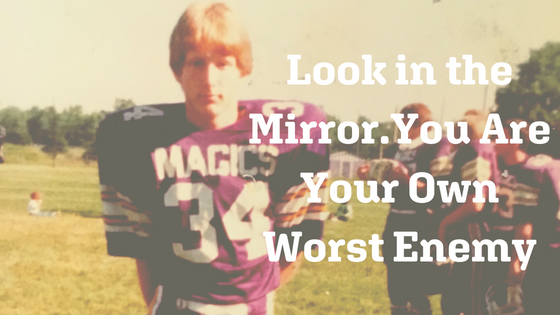
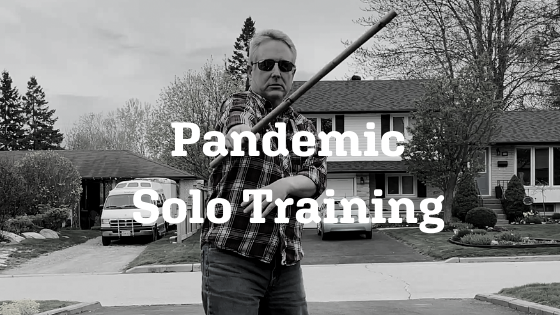

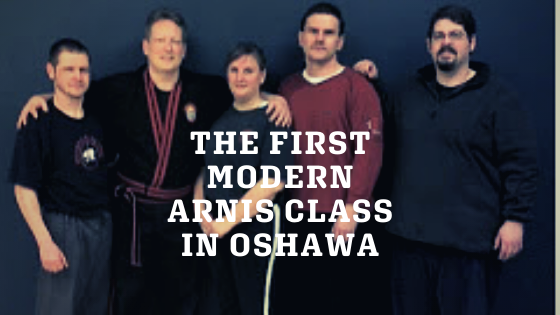
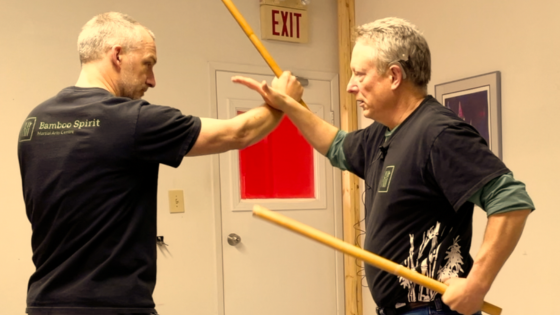
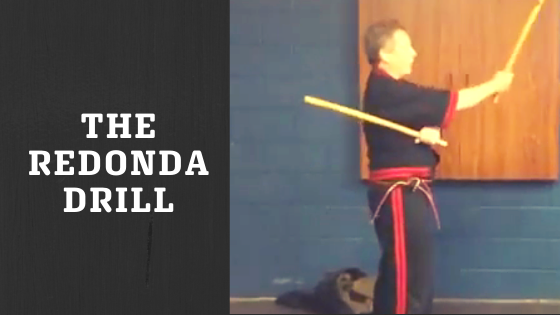
[…] the poor performance on my work situation or other factors. As much as I was travelling for work, I actually had plenty of time to prepare for the test. Instead, I opted to unwind at the end of each workday by crashing on the couch and watching […]
[…] II” premiered. I remember watching the movie at the Rolling Acres Mall in Akron, Ohio. I had played football for five years and was getting serious about weightlifting. Carl Weathers’s performance in this movie opened […]
[…] Look in the Mirror. You Are Your Own Worst Enemy […]